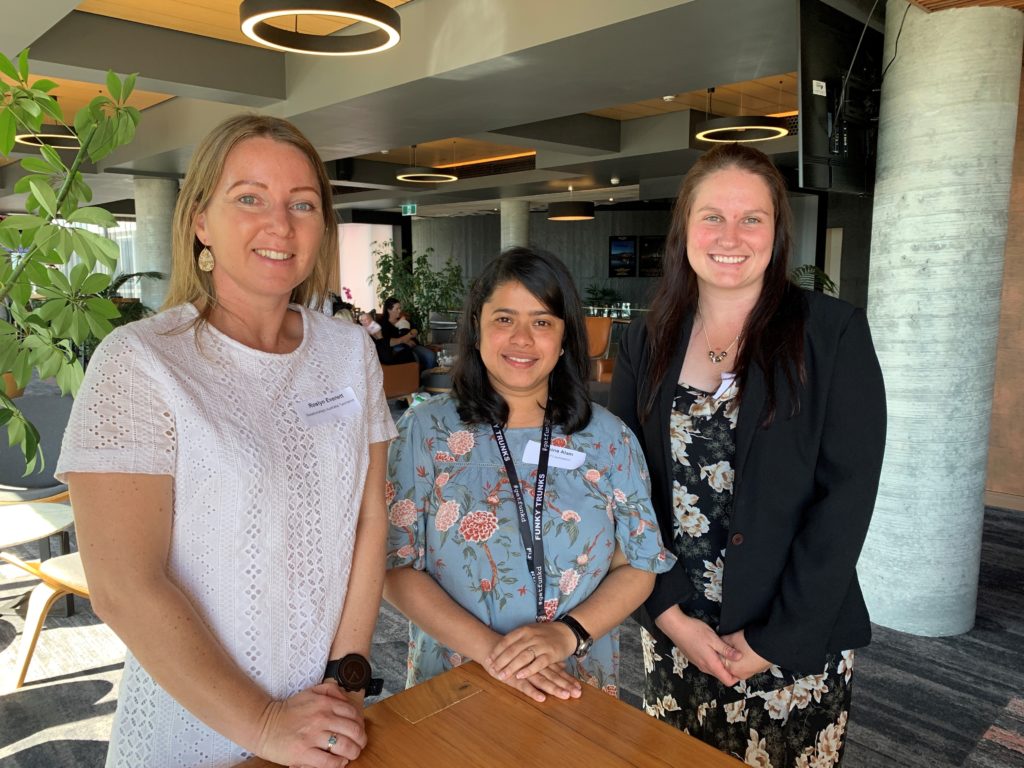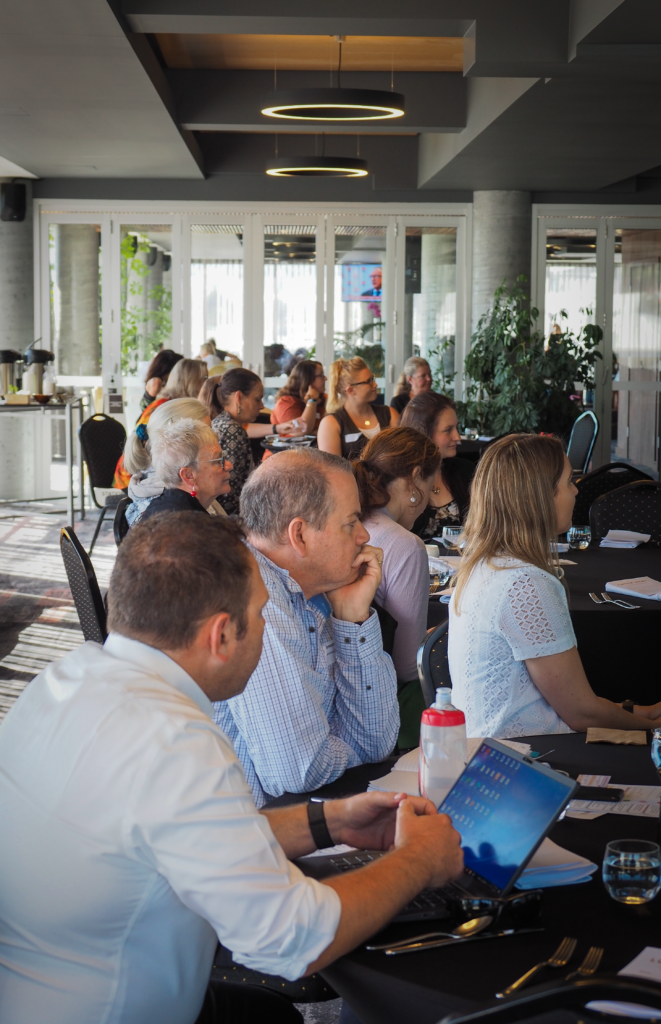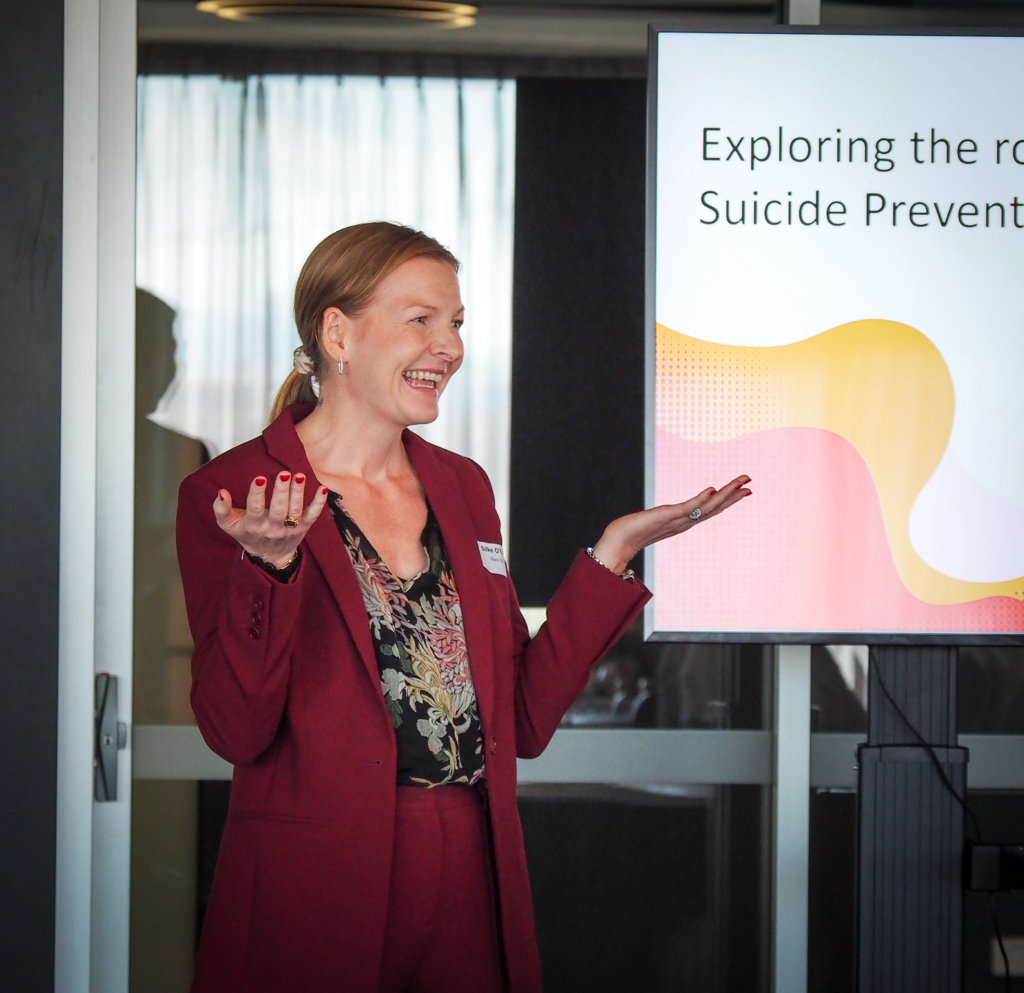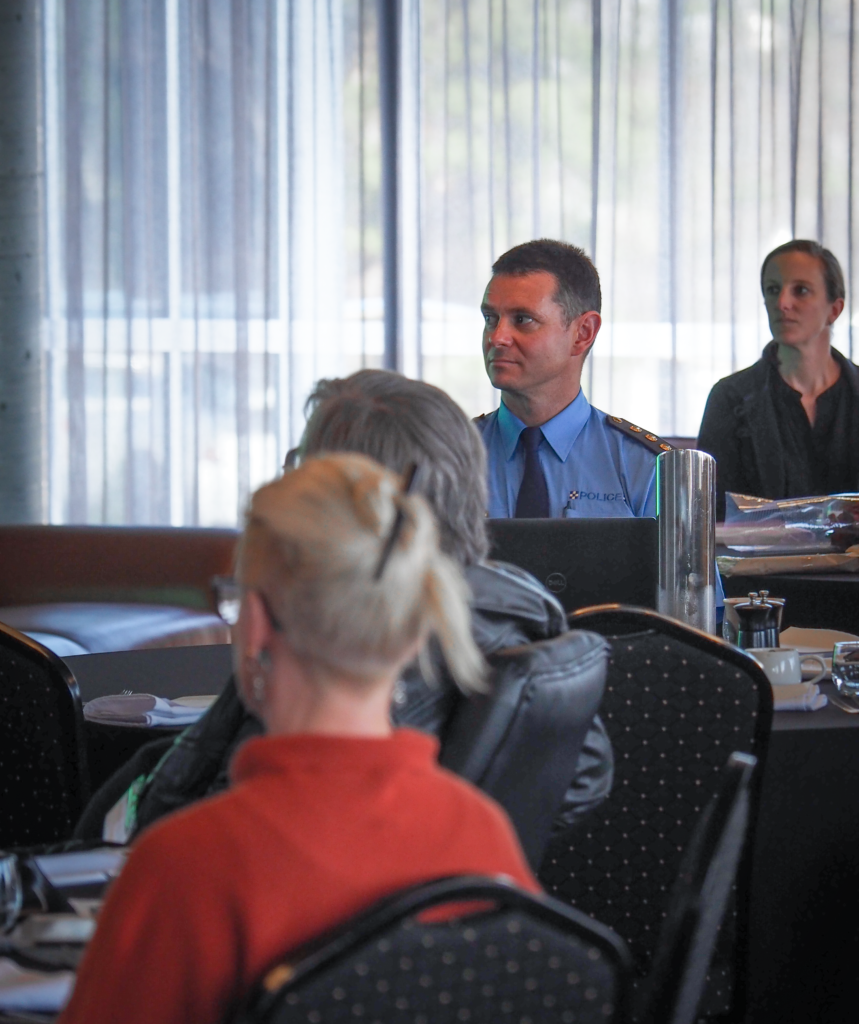Sharing insights from the Tasmanian suicide prevention trial
Posted on March 31, 2021

Please be aware this story contains reference to suicide, which might be distressing for some, particularly those with lived experience.
If you need help or would like to talk to someone, please call Lifeline on 13 11 14 or the Suicide Call Back Service on 1300 659 467.
Key participants in the Tasmanian component of the National Suicide Prevention Trial came together in Launceston on 31 March to discuss effective skills and strategies for promoting mental health and wellbeing in their local communities.
Primary Health Tasmania hosted the event, which invited community members involved in each of the three Tasmanian trial sites — Break O’Day, Launceston, and three north west municipalities (Burnie, Central Coast, and Devonport) — to join other key figures involved in the trial to reflect on how it has unfolded on a local level.
The Australian Government provided $4 million for the Tasmanian component of the trial, which focuses on men aged 40-64, as well as men and women over the age of 65.
Since starting in 2016, participating Tasmanian communities have run more than 160 unique activities designed to support and strengthen a community-wide ‘safety net’ to reduce the risk of suicide. These activities have included mental health first aid workshops, awareness-raising community events, and ongoing outreach initiatives.
Like other communities participating in the national trial, Tasmania’s trial sites sought to simultaneously test activities across nine different areas — including primary health care, local communities, and media reporting — under the Black Dog Insitute’s LifeSpan model.
Community members, representatives from peak health bodies, and Primary Health Tasmania team members at the March event heard from University of Tasmania researchers tasked with exploring Tasmanian successes and opportunities under the trial so far.
Researchers said the Tasmanian communities involved in the trial particularly excelled at putting the community-focused elements of the LifeSpan model into action, including training the community to recognise and respond to suicidality and engaging the local community in positive change.
The key role of involving people with lived experience of suicide was also instrumental in providing an informed perspective on the progress of the trial, they said.
All up, the researchers estimated the three Tasmanian trial sites have reached approximately 160,000 people through their work in suicide prevention.
Three trial site representatives — project officer Casey Musika (Break O’Day), and local coordinators Samina Alam (Launceston) and Roslyn Evenett (the north west communities) — were in the audience at the March event, and say they’ve gained invaluable lessons from their hands-on role in the trial.
“One of the key learnings for me (from the trial) is the idea that health does not always have to sit with the professionals, and that health is something that everyone can be involved in,” Samina says.
For her part, Roslyn says she was heartened by the support and interest of local health professionals in the trial’s ambitions.
“One thing that’s really become obvious (is) that there’s a really big willingness to work together, so information is shared between one healthcare professional to the next healthcare professional,” she says.
“There’s a willingness there to find a way to make that happen.”
And for Casey, the key takeaways moving forward could be captured in just a few words: “Sustainability, affordability, and a grassroots approach.”
During Wednesday’s event, Janey McGoldrick from the Black Dog Institute also talked about the vital insights yielded from Tasmania’s involvement in an Australian-first pilot program that aims to strengthen pharmacists’ suicide prevention skills.
A total of 85 Tasmanian pharmacists took part in the pilot training program, which acknowledged the opportunity to upskill pharmacists in advanced suicide prevention skills given their regular and constructive contact with the local community.
Primary Health Tasmania commissioned the University of Tasmania to conduct the independent local evaluation of the trial’s processes, with a view to gaining greater insight into Tasmania-specific solutions. There will also be a national review of the National Suicide Prevention Trial.
Click here to download an infographic summarising the Tasmanian trial activity.



